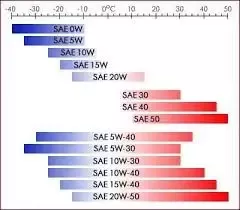Have you ever experienced poor acceleration in your car and wondered if bad timing could be the cause? In this article, we will explore the relationship between bad timing and poor acceleration, as well as the potential symptoms and solutions to this issue.
Understanding Timing in a Vehicle
Before diving into the impact of bad timing on acceleration, it’s important to understand the role of timing in a vehicle’s engine. The timing of a car’s engine refers to the synchronization of the opening and closing of the engine’s valves with the movement of the pistons. This precise timing is crucial for the engine to function efficiently and generate power for acceleration.
Effects of Bad Timing on Acceleration
Bad timing in a vehicle can lead to a range of performance issues, including poor acceleration. When the timing of the engine is off, it can cause a misfire, leading to a loss of power during acceleration. Additionally, incorrect engine timing can result in decreased fuel economy, rough idle, engine knocking, and overall sluggish performance.

Credit: www.lexusofknoxville.com
Symptoms of Bad Timing
Recognizing the symptoms of bad timing is essential for diagnosing the issue. Some common signs of bad timing that can contribute to poor acceleration include:
- Engine knocking or pinging
- Loss of power or acceleration
- Decreased fuel economy
- Overheating engine
- Rough idle

Credit: www.autotechiq.com
Impact of Timing Belt or Chain
The timing belt or chain plays a critical role in maintaining proper engine timing. If the timing belt becomes worn or misaligned, it can disrupt the engine’s timing, leading to symptoms such as rough idling, hesitation during acceleration, and reduced engine power. A stretched or failing timing chain can also result in lackluster performance and sputtering during acceleration.
Diagnosing and Resolving Timing-Related Issues
When experiencing poor acceleration attributed to bad timing, it is crucial to diagnose and resolve the issue promptly. This may involve inspecting the timing belt or chain for wear and alignment issues, as well as checking the engine’s timing components for proper functionality. If any issues are identified, timely replacement or repair of the timing components is necessary to restore optimal engine timing and acceleration performance.
Other Potential Causes of Poor Acceleration
While bad timing can contribute to poor acceleration, it’s important to consider other potential causes as well. Clogged fuel filters, malfunctioning sensors (such as the camshaft position sensor or oxygen sensor), and issues with the fuel pump or injectors can all impact acceleration performance. Additionally, carbon buildup in the throttle body and electronic throttle body issues can lead to weak acceleration and rough idling.
Seeking Professional Assistance
Addressing timing-related issues and poor acceleration may require the expertise of a qualified automotive technician. Professional diagnosis and repair can help ensure that the underlying cause of the problem is accurately identified and effectively resolved. By entrusting your vehicle to skilled professionals, you can have confidence in the restoration of optimal acceleration and overall engine performance.
Frequently Asked Questions
Can Bad Timing Affect Acceleration?
Yes, bad timing can affect acceleration. Incorrect timing symptoms can result in a loss of power or acceleration, decreased fuel economy, engine knocking or pinging, rough idle, or an overheating engine. A worn-out timing belt or chain can disrupt engine timing, causing the engine to misfire and reduce power during acceleration.
Does Timing Chain Affect Acceleration?
A bad timing chain can affect acceleration. Symptoms may include engine knocking or pinging, loss of power or acceleration, decreased fuel economy, overheating engine, or rough idle. A stretched or failing timing chain can throw off the engine’s timing, resulting in poor acceleration.
Can A Timing Belt Affect Acceleration?
Yes, a timing belt can affect acceleration. When a timing belt becomes worn or misaligned, it can disrupt the engine’s timing, leading to misfires, rough idling, hesitation during acceleration, and a decrease in engine power. It is important to ensure that the timing belt is in good condition to maintain optimal performance.
Why Does My Car Feel Like It’s Struggling To Accelerate?
A car struggling to accelerate may be due to issues like clogged fuel filter, broken fuel pump, or transmission problems. Additionally, a malfunctioning timing belt can lead to decreased engine performance and slow acceleration. Regular maintenance can help prevent these issues and ensure smooth driving experience.
Read More: How Can I Improve My Car’s Acceleration?
Conclusion
While bad timing can indeed cause poor acceleration in a vehicle, it is just one of several potential factors that can contribute to this issue. Understanding the symptoms of bad timing, the role of the timing belt or chain, and the need for professional diagnosis and repair is crucial for maintaining optimal acceleration and engine performance. By staying attentive to the signs of poor acceleration and addressing any timing-related concerns promptly, you can help ensure a smooth and efficient driving experience.


